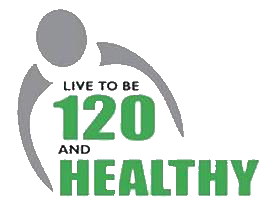About two years ago, I went through what felt like an all-consuming, existential quarter-life #crisis. Bizarrely, things looked great on the surface. I had a solid job, a great apartment in downtown Chicago, more friends that I could count, and an overall pleasant life.
But deep down, I felt empty and unfulfilled — and that feeling had been slowly creeping up on me until I was in full-on crisis mode. A big part of the problem was that I had been carrying on as if everything was OK, pushing my discontent further and further away from my consciousness until one day. It was then that my quarter-life crisis just hit me. I knew there was no ignoring it anymore.
I started to question everything — what I was doing, where I lived, who my friends were, what the point of life was. For weeks, all I could think about were these unanswerable questions, which unsurprisingly pulled me into an anxious depression. Day after day, I sat in my cubicle at work asking myself how I ended up on a career path I wasn’t passionate about, if I really wanted to live in Chicago, and why I was constantly going out with pseudo-friends who didn’t understand me.
These questions led to more complicated questions like What was my purpose in life? Do I even have a life purpose? Is everything inherently meaningless? I couldn’t come up with any answers.
After a few days of letting myself wallow in the pointlessness of it and waiting for something to happen, I realized the only person who could pull me out of this crisis was me. Here are seven steps I used to get my life back on track:
1. Share your feelings.
Most of the time, just talking about your feelings can be tremendously cathartic. Talking to a close friend, or someone else you feel comfortable with, allows you to feel supported, heard — and generally that there is space available for you to express #yourself. This makes difficult feelings more manageable.
One day, at the peak of my anxiety, I couldn’t hold it in any longer, and told my best friend that I was totally confused and completely distraught about life. I was surprised to find out that I was far from alone. Admitting to my challenges let me drop the facade of confidence and have a real conversation with my friend, who was going through the same thing I was. Sharing reminds you that you’re not alone.
2. Brighten things up with some color (literally).
This may seem like a waste of time, especially when you’re trying to figure out the important things in life, but hear me out. Coloring is a fun and effective stress-reduction tool because it allows us to focus on the present moment, and not on our other worries. There’s science behind it, too. The act of coloring involves both logic, by coloring forms, and creativity, by mixing and matching colors. This activity uses the cerebral cortex for vision and fine motor skills, and cultivates relaxation which lowers activity in the amygdala to help us control our emotions. So coloring can help you relax and de-stress, which ultimately can then help you tackle your bigger problems.
3. Volunteer with people.
The best piece of advice I got during my quarter-life crisis was to volunteer with other people. Putting my time, energy and emotions into helping other people was a way for me to get perspective on my life. I volunteered with children as a tutor, and with older people, working at a nursing home. This diverse spectrum of volunteering experiences really provided me with an expanded sense of perspective and insight into my life — from witnessing the ease and joy of children, to hearing the wisdom of people nearing the end of their lives, my problems didn’t seem quite as insurmountable.
During a quarter-life crisis it’s easy to become hyper self-focused, and helping other people causes you to readjust your thinking, as well as your priorities.
4. Pray. Meditate. Practice spirituality in a way that works for YOU.
I never identified as a particularly spiritual or religious person. And yet I often found myself praying when I was going through my crisis. The process of praying, or simply meditating, allows you to give your problems up for a moment or two — to God, to a higher power, to the universe, to your own spirit, to whatever you believe in. This is much easier said than done, but accepting that most things are out of your control can help bring back some sanity.
5. Make lots of plans (even if that sounds counterintuitive).
Another important step I took to get myself out of the rut of my quarter-life crisis was to make a plan. A vague plan is a start, but giving yourself a specific plan and timeline is a more effective approach to making actual changes.
In fact, I took a very businesslike approach and made actionable “to do’s” for each quarter of the year, which provided me with a deadline and also broke things down into more manageable time periods. Three months to decide whether or not I wanted to remain living in Chicago? Seemed more manageable than making a decision right away, but wouldn’t let me put off thinking about it too long.
Breaking my life down into digestible pieces made decision-making easier. I was completely aware that my plans could change at any time, but having a plan gave me something to focus on and helped me answer a lot of the stressful questions I was asking myself.
6. Connect with someone older.
This could be a much older friend, a mentor, a co-worker, a parent, or anyone who has been your age with enough time passed to have gained perspective on it. For me, this was my mom.
Talking to someone older allows you to ask them how they felt about their life when they were your age. I’ve found most of the time they will tell you they now feel silly for all the worrying that they did when they were younger. This helped me realize that for the most part, things will turn out just fine regardless of what happens, and most of life is unpredictable anyway.
7. See a therapist or get counseling of some kind.
Lucky for me, the health insurance I had through my job gave me easy and affordable access to a therapist who helped me find a vocabulary to ask myself the right questions about my life and figure out what was causing me angst. A lot of this was centered around finding a meaningful career, and she suggested I talked to a career counselor to help me feel like I was doing something worthwhile.
There are a ton of free resources available to help those of us suffering from quarter-life crises figure out a fulfilling career path, including Myers-Briggs tests, career aptitude tests and career counseling.
Although I’m no longer in a state of crisis, that doesn’t mean that I have it all figured out, and I often have to go back and revisit these steps. Each day I learn a little something new and am taking another step on my journey of life. Maybe one day, I’ll have all the answers, but I’m not counting on it.
Photo Credit: Shutterstock.com
ABSAuto Blog Samuraidata120 BlogMindBodyGreenSaraKatherine.jpg)
Sara Katherine is a freelance writer and marketing professional. She’s been a victim of taking herself too seriously and is looking for ways to share her cautionary tale. She’s a Michigan native currently living in Chicago, IL, and is always excited to see where life will take her next. She lives to encourage people to inform themselves on wellness (including fitness, mental health, nutrition and spirituality) and to have fun with it. Follow her story on instagram: sara_katherine_.



